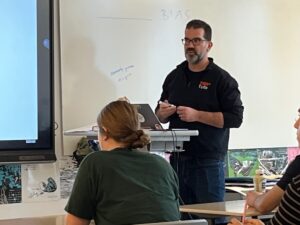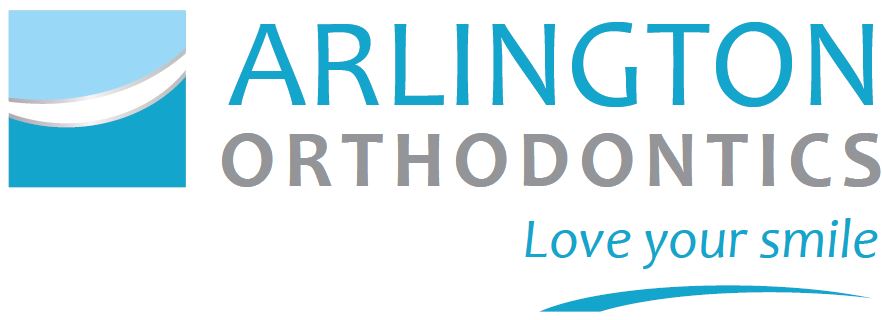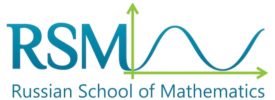 After Arlington High School students make the climb to Michael Sandler’s 5th floor classroom after lunch, they are confronted by a chart comparing Facebook users’ engagement with fake news to their engagement with real news.
After Arlington High School students make the climb to Michael Sandler’s 5th floor classroom after lunch, they are confronted by a chart comparing Facebook users’ engagement with fake news to their engagement with real news.
“Which one is winning?” Sandler asks, gesturing at the smart board. “Which kind of news gets the most likes and shares?”
“The fake,” says a student in the Psychology and Human Behavior class. Others, reading the graph, nod in agreement.
“Thanks to AEF, I was able to spend time in an environment where everybody is interested in psychology and learn from people whose work I’d only read about,” Sandler says. “The breadth of expertise at the event was amazing. It was a real gift to attend.”
“OK,” Sandler says. “Now which of the types of cognitive bias we’ve studied might explain that? Why would people be more attracted to something that’s fake but supports their world view, versus something real that might challenge it?”
“Confirmation bias,” another student offers. “We believe what we already think is true.”
Using a mix of texts, videos and cartoons, Sandler goes on to introduce a range of other cognitive biases as well as real-world contemporary examples. “Psychology is always changing,” he says. “I want to keep it fresh and current and focused on science.”
The desire to keep his course up to date and relevant to his teenage students led him to apply for an Arlington Education Foundation grant to attend the American Psychological Association’s annual convention in Denver, Colo. this past August. Sandler received roughly $2,200 from an AEF Continuing Scholars Award to help cover travel and registration costs.
“Thanks to AEF, I was able to spend time in an environment where everybody is interested in psychology and learn from people whose work I’d only read about,” Sandler says. “The breadth of expertise at the event was amazing. It was a real gift to attend.”
At the conference, he discovered two APA initiatives that have been informing his teaching this fall. The first is an effort to add more student collaboration to the teaching of psychology. In his Psychology and Human Behavior class, for example, he assigns each student a cognitive bias to research and then sets up a “speed-dating” exercise to compare the types of biases.
The second initiative aims to introduce students to the range of careers within the psychology field by bringing practitioners into the classroom. “While we often think first of therapists or clinical social workers, there are psychologists in the Armed Forces, in Fortune 500 companies and in research, too,” says Sandler, who also teaches AP Psychology at the high school.
He says he is eager to connect with Arlington residents in the psychology field who might enjoy visiting his classes and discussing their work with students.
As Sandler reminisces about the APA convention and its effect on his teaching, he exudes an enthusiasm for his subject that he says has held constant in his 18 years at the high school. “I feel very lucky that I get to talk about psychology all day long,” he says.
Both his students and his peers have noticed: Sandler was the AEF’s STARs Teacher of the Year in 2011, and most recently, a 2025 recipient of an Excellence in Teaching award from the APA’s Committee of Teachers of Psychology in Secondary Schools.








